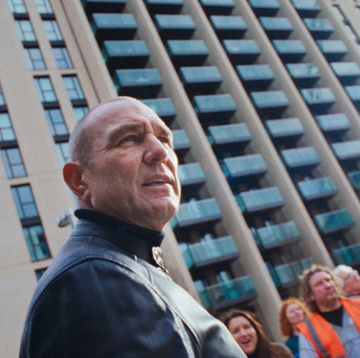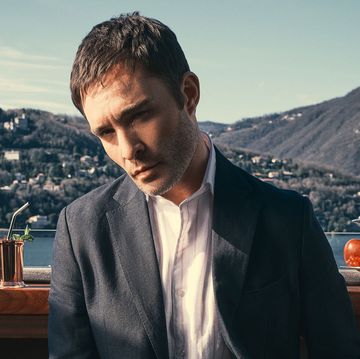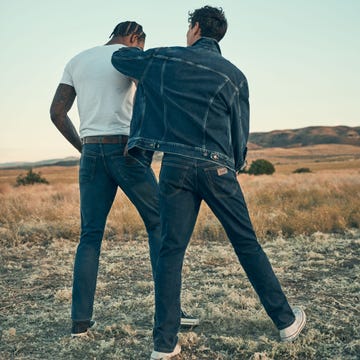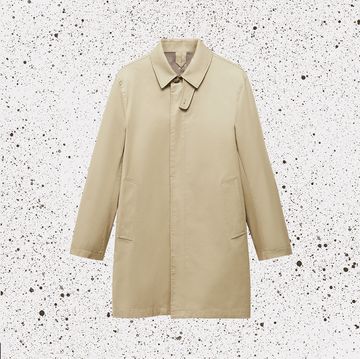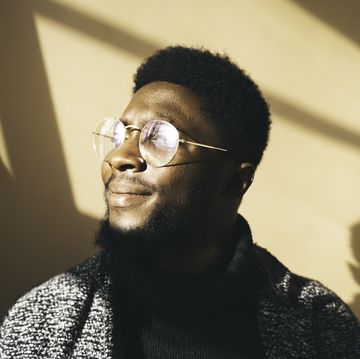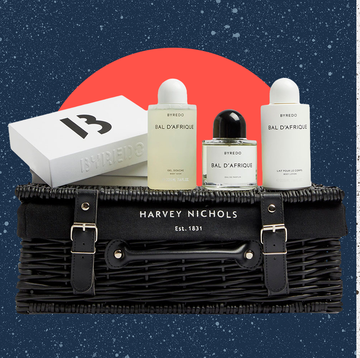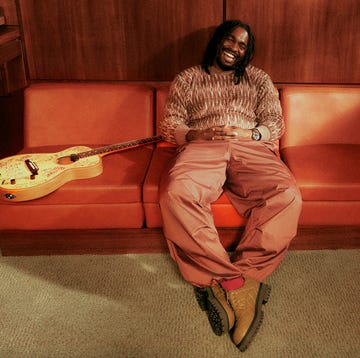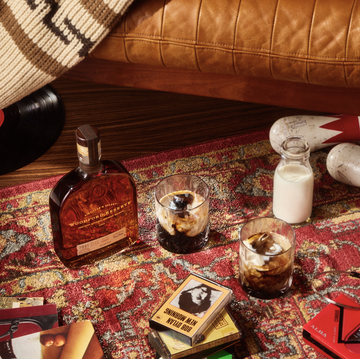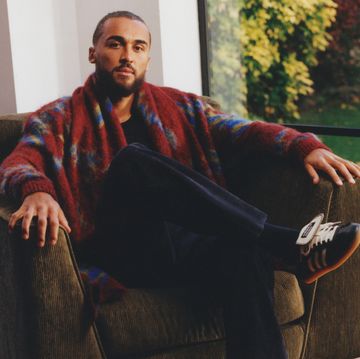WhatsApp, Starbucks, Ralph Lauren - you know the brands, but do you know how their founders made it to the corner office? One was a college dropout, another a bartender and the other had no formal training, proving it’s possible to go from humble beginnings to #blessed in half a lifetime.
From Jan Koum to Howard Shultz, these are the steps they took to become bajillionaires. You’ll need a better business idea than that one you came up with over your fifth pint, but read on for inspiration.
Jan Koum- CEO of WhatsApp
With a net worth of $9.1 billion according to Forbes, Koum, the co-founder of WhatsApp, is a Silicon Valley success story. And it’s fair to say he pretty much changed the way that the world communicates.
The 41-year-old co-founder and entrepreneur who now lives in California actually started his life back in the Ukraine where he attended a school with no bathroom inside it and swept floors in order to make his livelihood. After emigrating to the US, he headed to San Jose University to study programming, but dropped out before graduating.
While this may not be the average trajectory for a billionaire, Koum's tech journey makes it a bit more sensical. He worked at Yahoo in systems security with his WhatsApp co-founder Brian Acton who also worked there as VP of Engineering before both tried and failed to get a job at Facebook.
That’s when he started to brainstorm his new business. The WhatsApp you see today actually started life as a status update app. The version released in 2009 would let your friends know your status, say if you were at work or at the gym, available to talk or not.
But when that flopped he pivoted the idea and came up with the famous messaging service, inspired by the opportunity he saw with a then-new Apple App Store. Its immediate success caught the eye of a certain Facebook founder and in 2014, the app was bought by Facebook for $19 billion. ‘Suck it, Zuckerberg’ has got to be somewhere in his chat history.
Ralph Lauren - CCO of Ralph Lauren
Sure, you might not associate the Bronx with high fashion (unless you count a certain Jenny from the block, obvs) but without a certain designer being born there back in 1939, you wouldn’t have the clothes on your back (literally).
Lauren, born Ralph Rueben Lifshitz, grew up in the New York borough and went on to become a multibillion dollar fashion designer. But back then he spent his nights working at a clothing store and his school days convincing his classmates to buy handmade ties that he would mark up the price on for a small profit (once a salesman, always a salesman).
His fashion career continued in retail, working as a shop floor salesman for Brooks Brothers first, and then for the manufacturing company, Beau Brummell. It was here in the late Sixties that he convinced Brummell to support and make Lauren’s own tie line called Polo Fashions, which he’d set up thanks to a $50,000 loan he secured. His ties were deemed a great investment because they were so unique in shape (they were wider and more European than American ties at the time) that they set him apart from the competition.
The tie line was so profitable that he was able to make way for his next great business venture, expanding into menswear. Despite zero formal design training he followed up his tie business with the global fashion company we all know now. Not bad for a boy from the Bronx.
Howard Schultz - Executive Chairman of Starbucks
This self-made billionaire likes to drink an espresso macchiato, which is just as well because he’s the man who transformed Starbucks from a small coffee chain to a global company.
Born in Brooklyn, his parents were both college dropouts. He put himself through college (the first in his family to graduate) by working in a bar and even selling his own blood for money when times were tough.
But post-graduation he became a bit of an entrepreneur interested in business. In 1981, he walked into the first Starbucks store in Seattle (which he still has the keys for, and hasn’t changed one bit) and loved it so much that he relocated to join the brand as the director of retail operations.
He then left to start his own coffee house chain called Il Giornale, buying the six Starbucks branches that existed at the time with backing from local investors in 1987. From there his main aim was to transform Starbucks so that it captured the coffee culture that he’d seen in Europe, pushing for huge expansion across the US and then abroad. In 1992 the Starbucks brand completed its IPO on the stock market. The brand became a global coffee-drinking success and Schultz a billionaire who was even rumoured to be putting himself forward as a presidential candidate (he didn’t).
Tristan Walker - CEO and founder of Bevel Razor
Walker’s CV is what you’d expect from a Silicon Valley tech disruptor. He interned at Twitter and worked at Foursquare, but he comes from humble beginnings. He grew up in one of the roughest neighbourhoods in Queens, New York, one “you couldn’t go outside as much, out of fear of what might happen,” he said in an interview with Fast Company.
A scholarship to a boarding school enabled him to go to university and study economics, and then go on to trading on Wall Street. After the 2008 crash, he started an MBA at Stanford where his interest in tech start-ups really kicked in.
It took eight emails to get the founders of Foursquare to meet him, but he got the result he wanted and worked there for three years before moving to Andreesseen Horowitz and starting Walker & Company.
Adding some refreshing diversity to the tech start-up world, Walker’s goal was to create the “Procter & Gamble for people of colour.”
His first product, a razor kit, Bevel, garnered rave reviews online when it launched in 2013. The single-razor shaving system which has been specifically designed for coarse, curly hair and sensitive skin with a focus on reducing razor bump raised $2.4 million for the launch, and counts rapper Nas and singer John Legend as investors (as well as Google Ventures).
Passionate about equality and using his Silicon Valley pole position for good, Walker has also just launched Code 2040, a business that focuses on diversifying the tech world, which already has financial backing from Intel.
Lord Alan Sugar - Serial entrepreneur
We all know the name. The self-made British billionaire is the chairman of the Amshold Gorup, owner of Amscreen (display solutions) and Amsprop (a property portfolio). And of course, he’s the guy from The Apprentice and we’re all thankful he hasn’t followed Trump’s suit and applied for PM yet (though he does have his finger in the politics pie).
His business ventures started small and out of a Hackney council house - leaving school at 16 to sell electrical products out of a van (Del Boy style). In fact, it was his early interest in computers and tech that set him apart from the crowd.
In the Eighties, while everyone else was playing with Rubik’s cubes, Lord Sugar kick-started his business with the launch of his Amstrad CPC 464 home computer, which took Europe by storm thanks to being 10x cheaper than its competitors.
Over 3million of them were sold across Europe and the company was worth £1.2billion in 1985. Though he decided not to head to Silicon Valley and keep up with the rapidly evolving tech industry, his first venture set him up sweet for the investments and companies he would create in the years to follow.
This content has been brought to you in association with the Mercedes-Benz X-Class. First of a new kind. For those born to lead not to follow. Find out more here.





